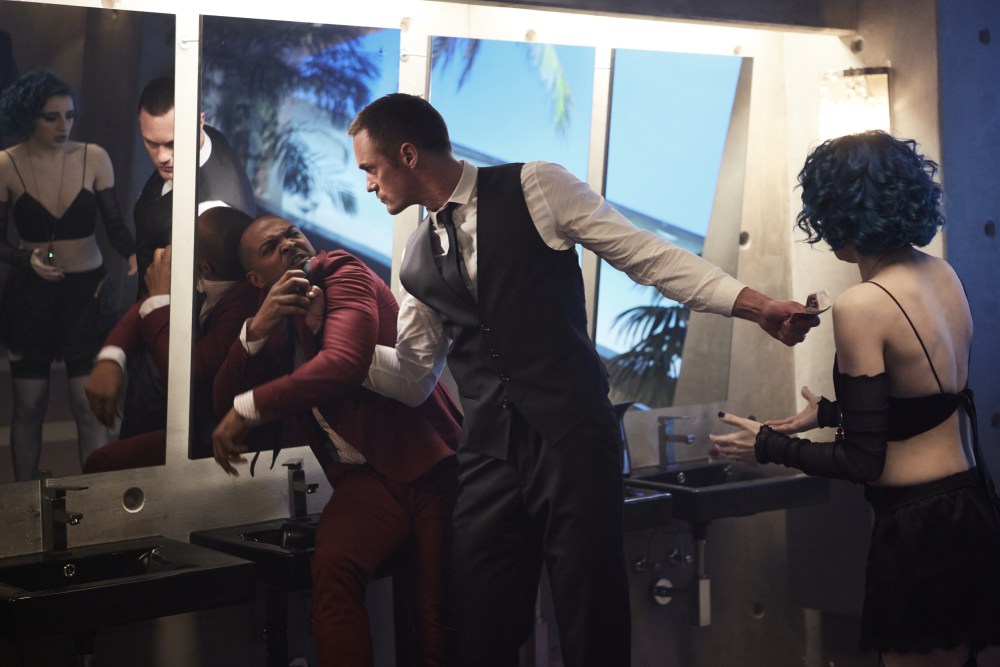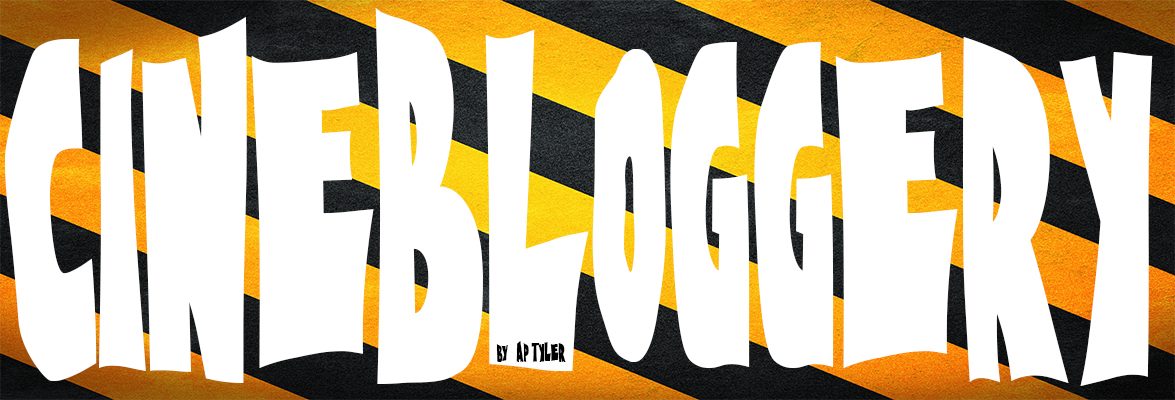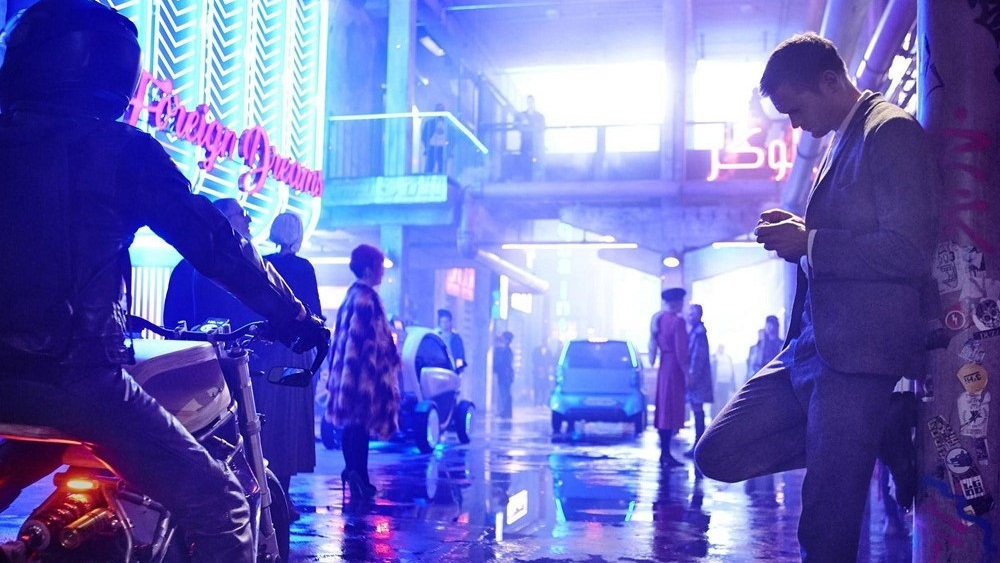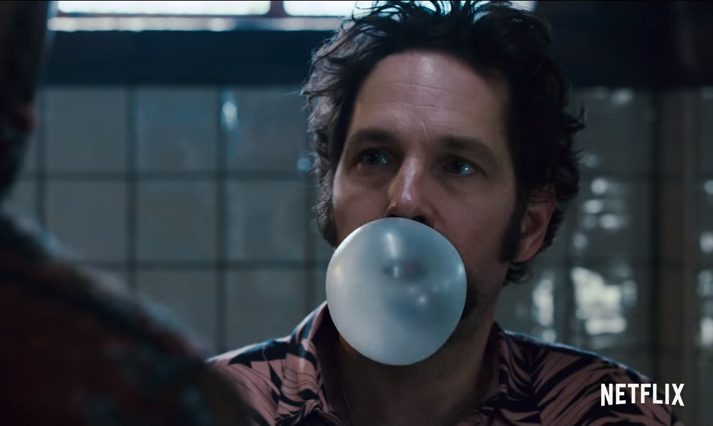There Are No Words
Have you ever had that sinking feeling that you’re seeing something different to the rest of the world? Like, one day someone will come along and tell you that blue is actually green, and that voice you use inside your head shouldn’t really sound like that? No? I do.
It doesn’t often bother me, but every so often something will come around and truly twist the nipples of my anxiety and I’ll break out in a cold sweat. Take the dress. You know, the dress. It’s blue and black. It was ALWAYS blue and black. And yet, people still insist to this day that it’s white and gold. I thought I was losing my flipping mind. HOW could ANYONE see it DIFFERENTLY? I started to feel like my entire life was a lie.
Likewise, as I sit here, contemplating the reviews of the film I’ve been obsessing about all weekend, I’m beginning to wonder: What am I seeing that others don’t?
The film in question is Mute (2018). Written and directed by Duncan Jones, and released straight to Netflix, Mute is a spiritual sequel to Jones’ universally beloved Moon (2009). A sci fi noir of the cyberpunk variety, Mute draws clear inspiration from Blade Runner (1982) and, I suspect, a heavy dose of Hitchcock and, hell, Guy Ritchie.
And I absolutely adore it.
Set in a future Berlin, Mute introduces us to the character of Leo (Alexander Skarsgård), a grown man who has lived his life with a terrible injury he received as a child – effectively making him unable to speak, thanks to the Amish sensibilities of his family, particularly his mother. Athletic, strong and possessing a soft spot for traditional sensibilities, Leo spends his free time swimming, drawing and listening to classical music on an old fashioned record player.
His apartment, decorated like something straight from the 19th century, lies surrounded by the wonders of the future. Flying cars, neon displays and architecture scraping at the heavens. Amongst this, Leo waits for his girlfriend Naadirah (Seyneb Saleh) after a long trip away. Together, they grab something to eat – and Naadirah gives Leo a gift. A mobile phone. In her words, “The oldest, simplest phone” she could find. It’s clear that they are happy, and in love.
They also happen to both work in a seedy bar – complete with exotic dancers both human and machine. While Leo mans the bar, Naadirah works the tables as a waitress. It’s during one of these shifts that Naadirah gains the unwanted attention of a group of obnoxious Brits, including Stu (Noel Clarke) and Rob (Robert Kazinsky). When things get tense, Leo is quick to step in – earning the ire of the bar’s management.

Also frustrated by Leo’s actions is Cactus Bill (Paul Rudd), a boorish American Medic on the run from the authorities after going AWOL. Naturally, Cactus is desperate to get out of Germany – and he needs the likes of Stu and Rob to falsify a set of IDs to get him back to America. Working with another American former-serviceman, Duck (Justin Theroux), Cactus earns his wage performing illegal surgery in the basement of his home for one of the local gangs.
Things come to a head when, after sharing an emotional evening together, Naadirah disappears from the face of the Earth – leaving Leo alone and desperate for answers. After snapping at Stu once again, Leo is fired and sent home, bleeding and broken. He picks up the phone and begins an investigation that will quickly become an obsession.
As Leo digs deeper for answers, he soon discovers the depths society can go. His quest leads him from seedy establishment to seedy establishment, mixing with prostitutes, gangs and business leaders. From his perspective as a technophobe, we are granted the unique perspective of a man at total odds with the world around him. Unable to ask questions, Leo is forced to witness and study his opponents just as we, the audience, must be led to explore this futuristic landscape.
Just as Max Rockatansky serves as our avatar into the Australian wasteland, Leo’s old fashioned methods strike a chord, running parallel to the jaded, street smart villains in his way.
Meanwhile, Cactus Bill becomes noticeably more stressed out and angry, the friction between him and his troublesome partner Duck growing in intensity as the film progresses. Particularly protective of his daughter, Cactus only wants to get out as soon as he can, but as Leo’s quest for information continues, it becomes increasingly clear that their paths must cross. As things escalate further and further, the tension rises to a satisfying conflict that is only the beginning of Leo’s agony.
For fear of spoilers, I don’t want to probe any deeper, only to say that the supporting cast are exceptionally strong, with the likes of Robert Sheehan and Dominic Monaghan each providing some very unexpectedly strong performances. The brief glimpse of Sam Rockwell even brought out a cheer.
I love, love this film.
Like all great sci fi noirs before it, Mute stands out for its absolutely breathtaking atmosphere. Visually stunning, Gary Shaw’s cinematography provides a comfortably familiar tone to any fan of the genre, while retaining its own sense of scale and tone. It goes without saying that Clint Mansell’s soundtrack is flawless. Particularly in the sweeter moments, it’s hard not to fall in love alongside Leo and Naadirah with Mansell’s touching music plays along.
The two leads, such as they are, are magnificent as polar opposites. Alexander Skarsgård’s portrayal of Leo, the wounded puppy, lost in a larger world, was without fault. Whether or not his lack of speech had any deeper meaning, Leo was a man who had only one aim – to find Naadirah. His exploration of Berlin is as new to him as it is to us, and his disability sets him apart as an outsider – one who is able to keep pushing forward, no matter the cost.
On the other hand, there is Cactus Bill. Always running his mouth, Cactus is possibly my favourite role Paul Rudd has ever played. One part sarcastic to two parts dangerous, Cactus can get the job done, but is not afraid to tell it how it is. As things begin to take a darker turn in his world, he reacts accordingly. He is controlled by his emotions, and comes across more of an anti-hero than an antagonist, as you would assume on first glance. I haven’t even touched on the excellent sense of humour throughout – which I think might be more to do with Paul Rudd than Duncan Jones’ script, but who knows!
If I had to find fault, there are moments where the pacing felt like it slowed down a little too much. Particularly during the final moments, where it feels like the story should have ended a long time ago. I can appreciate that the story twists and turns a little much, but this is in keeping with the genre – and tempers the somewhat predictable actions of some of the darker characters in a pretty satisfactory way.
Watch it. See for yourself. Make up your own mind.
I can safely say that Mute has found its way into my head, much as Moon did all those years ago.
Yours, A P Tyler



Comments are closed, but trackbacks and pingbacks are open.